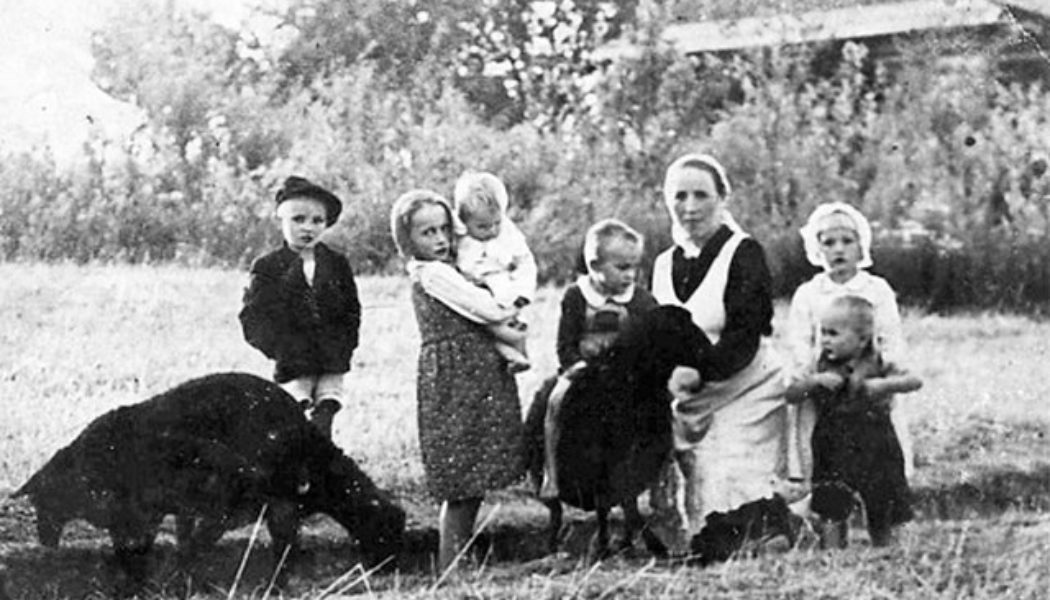
I was recently interviewed by Maria Wiering of Our Sunday Visitor about the upcoming beatification (on Sep. 10th) of the Ulma Family, who was martyred by the Nazis for hiding Jews on their farm in Poland. Although only a few points could make it into the final article, I’m providing the whole interview here, which I hope sheds light on the Church’s first beatification of an unborn baby.
- What is most unusual about this upcoming beatification – that the child being beatified (as part of the family) was unborn, or that he or she was unbaptized?
It is rare for entire families to be beatified together, but when we do see it is in the case of martyrdom. Another recent example can be found in Japanese martyrs, including children, beatified in 2008, who were martyred in the early 17th century. There were families martyred together in the early Church as well. There are also examples of pregnant women who died after giving birth, such as St. Perpetua and Bl. Emilia Fernandez. The Ulma family is unique in specifying their unborn child in the beatification cause. The closest example would be the Holy Innocents, who, although unbaptized, were martyred for the sake of Christ, without any specific intention of offering their lives.
- What about the Church’s understanding of baptism is important for Catholics to understand here? Same question for what is beatification.
The Church has always taught that baptism is necessary for salvation, but also that the reality of baptism, as the forgiveness of original sin and the imparting of sanctifying grace, can be imparted by God outside of the sacrament.
Beatification recognizes holiness and includes a person in the liturgical calendar of a local church. By beatifying the unborn child, the Church is upholding the body’s life as a witness to Christ’s death and inviting us to ask for the child’s intercession.
- How do we make sense of the beatification of a child who has not been baptized, “without which no one ‘can enter the kingdom of God’” (CCC 1215)? Or, is there a sense that this child was indeed baptized, as Vatican News stated in a story announcing the beatification, “The children shared in the operative faith of their parents, while the unborn child in Wiktoria’s womb received a baptism of blood.”
A baptism of blood was recognized by the early Church for those with the intention of receiving baptism and who gave their life for Christ in martyrdom before the sacramental baptism could occur. The Church does not teach that unbaptized babies are saved because of their innocence from actual sin, as the absence of sanctifying grace due to original sin would prevent the entrance into heaven.
The International Theological Commission issued a non-Magisterial statement, “The Hope of Salvation for Infants Who Die without Being Baptized ,” which speculated on the possibility of a baptism of desire that would stem from the intention of the parents to baptize the child if possible. This builds upon the Catechism’s own statement in paragraph 1261, which lays out the hope, though without certainty, of salvation for unbaptized children: “As regards children who have died without Baptism, the Church can only entrust them to the mercy of God, as she does in her funeral rites for them. Indeed, the great mercy of God who desires that all men should be saved, and Jesus’ tenderness toward children which caused him to say: ‘Let the children come to me, do not hinder them,’ allow us to hope that there is a way of salvation for children who have died without Baptism.” The Church asks us to commend children to the mercy of God rather than presuming their salvation.
In regards to the unborn Ulma child, the child did die out of a hatred of the faith. Including the child in the martyrdom recognizes that the life of the family as a whole was offered to Christ and shared in the grace of his death.
- How does this situation relate to debates about where the unbaptized child goes when he or she dies? How is our understanding shaped by the 2007 document “The Hope of Salvation for Infants who Die without Being Baptized?”
The International Theological Commission discusses the possibility of a baptism of blood for unbaptized infants but also recognizes difficulties in this argument because the child lacks the intention included in classic cases. On the other hand, it lays out a possible solution, akin to infant baptism, where the faith of the Church supplies the intention for the child.
- Does the situation of the soon-to-be-beatified Ulma child speak to the sanctification of miscarried or stillborn children, or infants who’ve died before baptism? Or should it be considered only within the particulars of this situation, and that this beatification within the context of the martyrdom of an entire family?
Like the Holy Innocents, the unborn baby of the Ulma family would point to the fact that Jesus can save children who have not received sacramental baptism. There would need to be another way of receiving the grace of baptism. God has not revealed anything to us clearly about this, but the Church has affirmed that God could grant these graces to unborn children, asking us to pray and commend them to his mercy.
- Is there anything you think could be theologically misconstrued or misunderstood about this topic?
I have found that many Catholics do not take the reality of original sin seriously today and even delay the baptism of their children for long periods. Original sin means that we are not born with sanctifying grace and need to receive it as a gift from God. The unborn child of the Ulma family received the graces of baptism through martyrdom. This should not be used as a reason to delay baptism for children because they too need to receive the great gift of baptism. Even if is possible for God to save unborn children, we should do all that we can to ensure the salvation of our children and not make any presumptions. Heaven is not automatic, as it completely exceeds our nature and can only be received as a gift from God. God’s ways, however, surpass our comprehension, and so we entrust everything to him and trust his providence.
- What aspect of this issue/situation do these questions miss? What else needs to be considered?
The beatification of an unborn child provides the Church with a powerful witness to the full personhood and dignity of every child, born or unborn. I foresee the Ulma family serving as powerful intercessors for Catholics working in the Pro-Life movement and supporting pregnant women. We can pray to the Ulma children for an end to abortion and the recognition of the dignity of the smallest among us.




